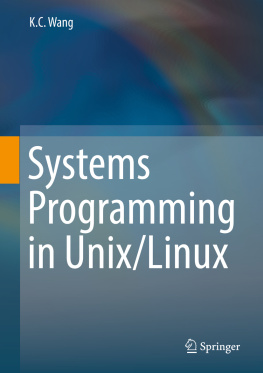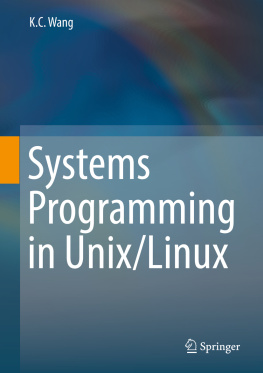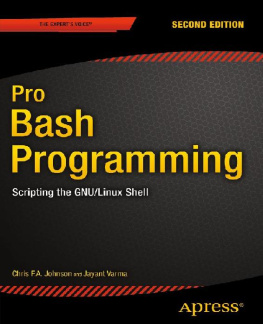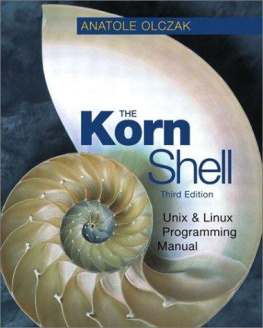K. C. Wang - Systems Programming in Unix/Linux
Here you can read online K. C. Wang - Systems Programming in Unix/Linux full text of the book (entire story) in english for free. Download pdf and epub, get meaning, cover and reviews about this ebook. year: 0, publisher: Springer International Publishing, genre: Computer. Description of the work, (preface) as well as reviews are available. Best literature library LitArk.com created for fans of good reading and offers a wide selection of genres:
Romance novel
Science fiction
Adventure
Detective
Science
History
Home and family
Prose
Art
Politics
Computer
Non-fiction
Religion
Business
Children
Humor
Choose a favorite category and find really read worthwhile books. Enjoy immersion in the world of imagination, feel the emotions of the characters or learn something new for yourself, make an fascinating discovery.
Systems Programming in Unix/Linux: summary, description and annotation
We offer to read an annotation, description, summary or preface (depends on what the author of the book "Systems Programming in Unix/Linux" wrote himself). If you haven't found the necessary information about the book — write in the comments, we will try to find it.
Systems Programming in Unix/Linux — read online for free the complete book (whole text) full work
Below is the text of the book, divided by pages. System saving the place of the last page read, allows you to conveniently read the book "Systems Programming in Unix/Linux" online for free, without having to search again every time where you left off. Put a bookmark, and you can go to the page where you finished reading at any time.
Font size:
Interval:
Bookmark:
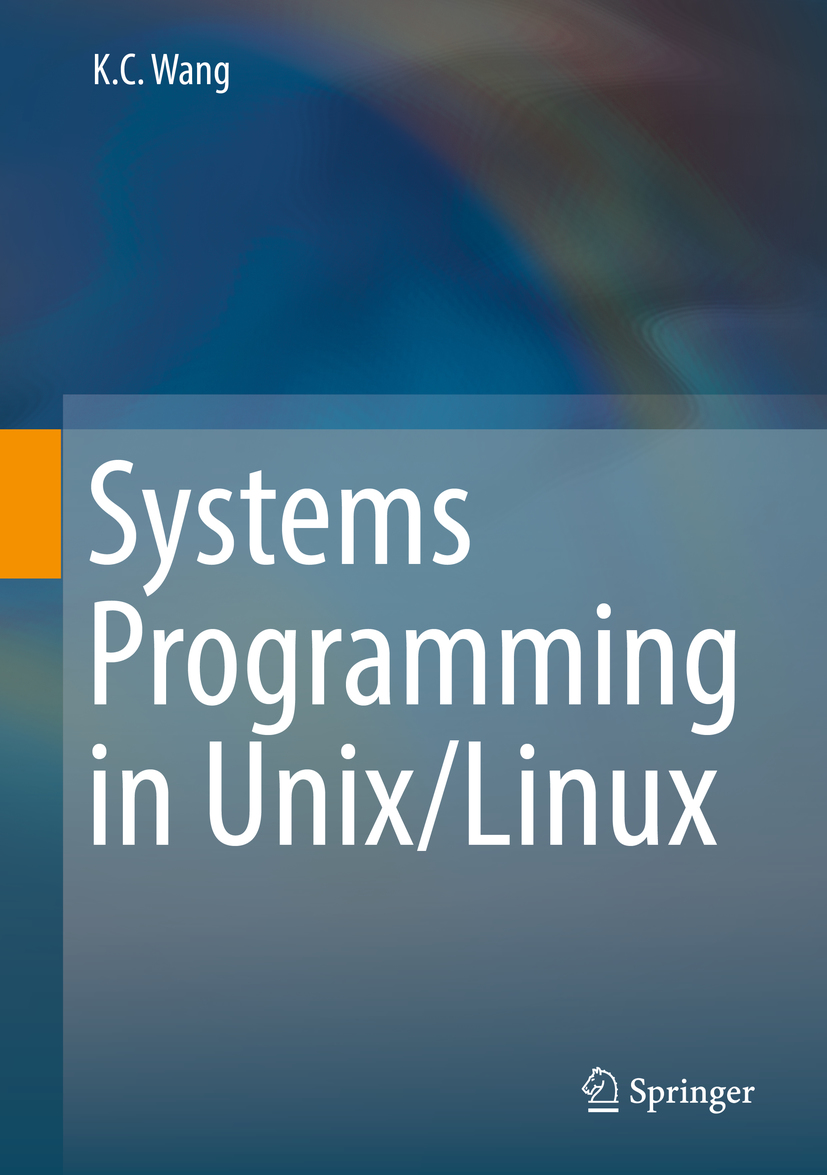

This Springer imprint is published by the registered company Springer Nature Switzerland AG
The registered company address is: Gewerbestrasse 11, 6330 Cham, Switzerland
Dedicated to
Cindy
Systems programming is an indispensable part of Computer Science and Computer Engineering education. System programming courses in Computer Science/Engineering curriculums play two important roles. First, it provides students with a wide range of knowledge about computer system software and advanced programming skills, allowing them to interface with operating system kernel, perform file operations and network programming, and make efficient use of system resources to develop application programs. Second, it prepares students with needed background to pursue advanced studies in Computer Science/Engineering, such as operating systems, embedded systems, database systems, data mining, artificial intelligence, computer networks, and distributed and parallel computing. Due to its importance, systems programming in Unix/Linux has been a popular subject matter in CS/CE education and also for self-study by advanced programmers. As a result, there are a tremendous number of books and online articles in this area. Despite these, I still find it difficult to choose a suitable book for the Systems Programming course I teach at WSU. For many years, I had to use my own class notes and programming assignments in the course. After careful thinking, I have decided to put together the materials into a book form.
The purpose of this book is to provide a suitable platform for teaching and learning the theory and practice of systems programming. Unlike most other books, this book covers systems programming topics in greater depth and it stresses programming practice. It uses a series of programming projects to let students apply their acquired knowledge and programming skills to develop practical and useful programs. The book is intended as a textbook in technical-oriented systems programming courses. It contains detailed example programs with complete source code, making it suitable for self-study also.
Undertaking this book project has proved to be another very demanding and time-consuming endeavor. While preparing the manuscripts for publication, I have been blessed with the encouragement and help from many people. I would like to take this opportunity to thank all of them. I want to especially thank Yan Zhang for his help in preparing figures for the book and proof-reading the manuscript.
Special thanks go to Cindy for her continuing support and inspirations, which have made this book possible. Above all, I would like to thank my family for bearing with me with endless excuses of being busy all the time.
Sample solutions of programming projects in the book are available for download at http://wang.eecs.wsu.edu/~kcw . For source code, please contact the author by email.

received the BSEE degree from National Taiwan University in 1960 and the PhD degree in Electrical Engineering from Northwestern University, Evanston, IL, in 1965. He is currently a professor in the School of Electrical Engineering and Computer Science at Washington State University. His academic interests are in operating systems, distributed systems, and parallel computing.
This chapter presents an introduction to the book. It describes the books scope, intended audience and its suitability as a textbook in Computer Science/Engineering curriculums. It presents a brief history of Unix, which includes early versions of Unix at Bell Labs, AT&T System V and other developments of Unix, such as BSD, HP UX, IBM AIX and Sun/Solaris Unix. It describes the development of Linux and various Linux distributions, which include Debian, Ubuntu, Mint, Red Hat and Slackware. It lists both the hardware platforms and virtual machines for Linux. It shows how to install Ubuntu Linux to both VirtualBox and Vmware virtual machines inside the Microsoft Windows. It explains the startup sequence of Linux, from booting the Linux kernel to user login and command execution. It describes the Unix/Linux file system organization, file types and commonly used Unix/Linux commands. Lastly, it describes system administration tasks for users to manage and maintain their Linux systems.
This book is about systems programming in the Unix/Linux (Thompson and Ritchie ) environment. It covers all the essential components of Unix/Linux, which include process management, concurrent programming, timer and time service, file systems, network programming and MySQL database system. In addition to covering the functionalities of Unix/Linux, it stresses on programming practice. It uses programming exercises and realistic programming projects to allow students to practice systems programming with hands-on experiences.
Systems programming is an indispensable part of Computer Science and Computer Engineering education. System programming courses in Computer Science/Engineering curriculums serve two main purposes. First, it provides students with a wide range of knowledge about computer system software and advanced programming skills, allowing them to interface with operating system kernel, make efficient use of system resources to develop application software. Second, it prepares students with the needed background to pursue advanced studies in Computer Science/Engineering, such as operating systems, embedded systems, database systems, data mining, artificial intelligence, computer networks, network security, distributed and parallel computing.
Font size:
Interval:
Bookmark:
Similar books «Systems Programming in Unix/Linux»
Look at similar books to Systems Programming in Unix/Linux. We have selected literature similar in name and meaning in the hope of providing readers with more options to find new, interesting, not yet read works.
Discussion, reviews of the book Systems Programming in Unix/Linux and just readers' own opinions. Leave your comments, write what you think about the work, its meaning or the main characters. Specify what exactly you liked and what you didn't like, and why you think so.

